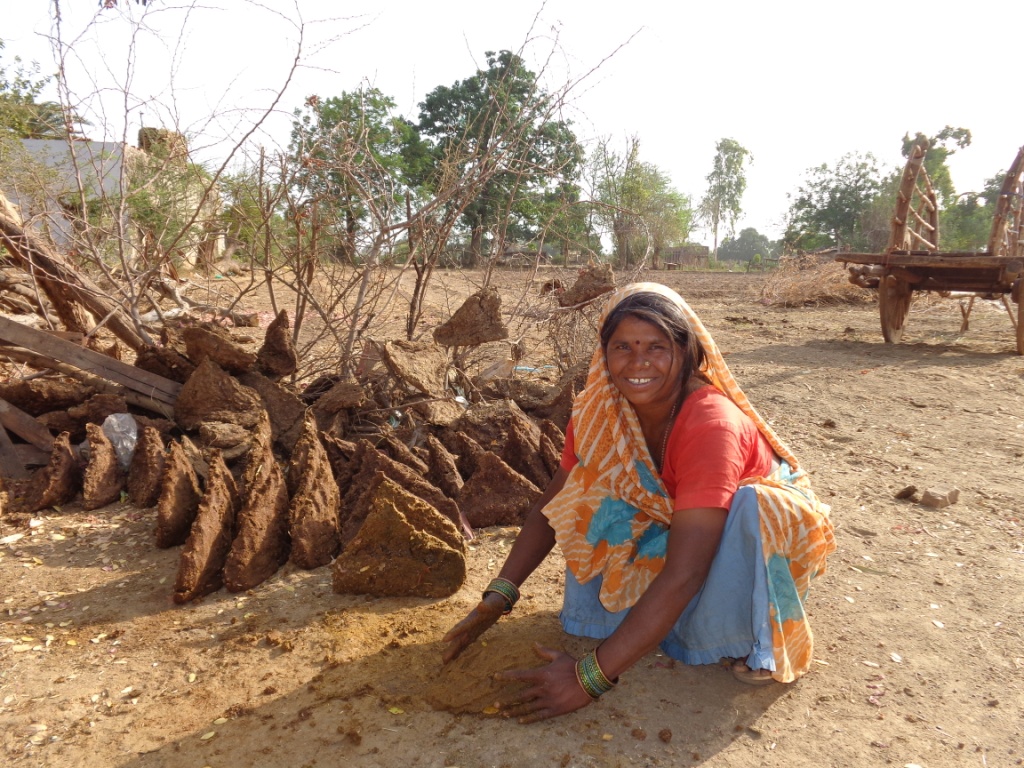Climate Change – Rural Resilient Livelihoods
 ‘Climate change is a matter of grave concern for all of us and TARAgram Yatra is one of its kind in the nation, that has addressed this issue both at grassroots and policy level. It has enabled people from different spheres, sectors and professional background to come on a common platform and witness the developmental activities carried out by Development Alternatives in the rural areas. The happiness and satisfaction, which I noticed on the faces of the farmers, speaks for the climate adaptation models demonstrated in the region. I take back loads of valuable learning with me and I hope Development Alternatives continues to work for providing resilient livelihoods to rural communities.’ – Mr.Rana Pujari, EPCO.
‘Climate change is a matter of grave concern for all of us and TARAgram Yatra is one of its kind in the nation, that has addressed this issue both at grassroots and policy level. It has enabled people from different spheres, sectors and professional background to come on a common platform and witness the developmental activities carried out by Development Alternatives in the rural areas. The happiness and satisfaction, which I noticed on the faces of the farmers, speaks for the climate adaptation models demonstrated in the region. I take back loads of valuable learning with me and I hope Development Alternatives continues to work for providing resilient livelihoods to rural communities.’ – Mr.Rana Pujari, EPCO.
TARAgram Yatra to Orchha, on 13th and 14th October was a unique knowledge sharing experience for the participants. It helped identify both critical challenges and relevant solutions for climate resilient planning and development in the country.
The team that was a part of TARAgram Yatra to Orchha comprised of CSR professional, academicians, researchers from international universities, journalists, civil society representative, government officials from the Ministry of Water Resources, Government of India and representatives of Madhya Pradesh state nodal agency on climate change, Environment Planning and Coordination Organisation (EPCO).
The participants visited the intervention areas of Development Alternatives in the semi-arid Bundelkhand, a climate sensitive and vulnerable region which faces the brunt of climate variability impacts on a regular basis. This drought prone region showcased community-based climate change adaptation models which have demonstrated the capacities to increase resilience of the communities against climate change.
The yatra began with a field visit to Sri Ram Raja Gaushala, a unique enterprise development model run by women of the Sankalp Swa-Shakti Mahila Mandal. Women were engaged in natural resource management and alternative livelihood activities such as using cow dung to produce biogas and vermicomposting and then selling it for livelihood. The centre also works as a micro-processing unit for agro-produces using the energy produced by biogas. Gaushala has demonstrated success in increasing adaptive capacities of communities against climate change.
The next stop for the participants of TARAgram Yatra Orccha was TARAgram Pahuj, a resource centre for demonstrating climate resilient agriculture models to communities for adoption and replication. The Yatra was concluded with field visits to the Integrated Watershed Management Programmes implemented in Tikamgarh and Datia districts of Madhya Pradesh. During this visit the participants interacted with the members of the Panchayat , the watershed committee and the climate adaptive core groups in Kamher and Nauner villages of Datia and got an understanding of the climate adaptive planning processes in these villages.
The participants of TARAgramYatra, got an understanding of how initiatives of Development Alternatives’ in Bundelkhand have highly benefited the local communities. Communities in this region are witnessing the benefits from these initiatives and are coming forward to adopt and replicate them.
Dr. D.S Bhadauriya, from Lupin Foundation shared that ‘Effective implementation of watershed interventions and women energy enterprise is not only helping the communities fight against climate change but is helping them to earn alternative livelihoods and additional incomes. Development Alternatives’ interventions in strengthening community processes and integrating climate change concerns in village planning processes are praiseworthy. I consider TARAgram Pahuj as an agro-tech park, which demonstrates locally relevant climate resilient agricultural practices under one roof.’
TARAgramYatra to Orccha has highlighted that ‘Mainstreaming Climate Change Concerns into Development Planning’ can multiply the existing technical, social and financial resources, enhance capacity to identify trade-offs between adaptation needs and lead to greater cost-effectiveness.
Harshita Bisht
hbisht@devalt.org
The views expressed in the article are those of the author’s and not necessarily those of Development Alternatives.



Leave a Reply